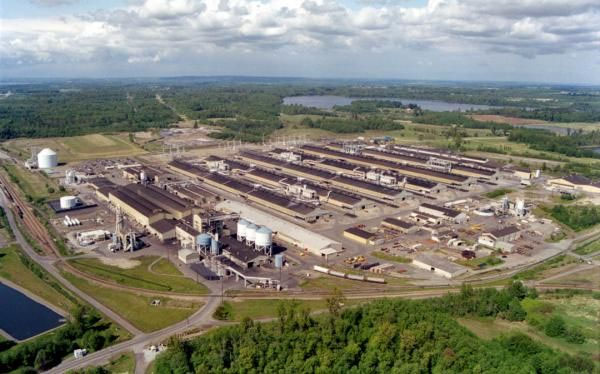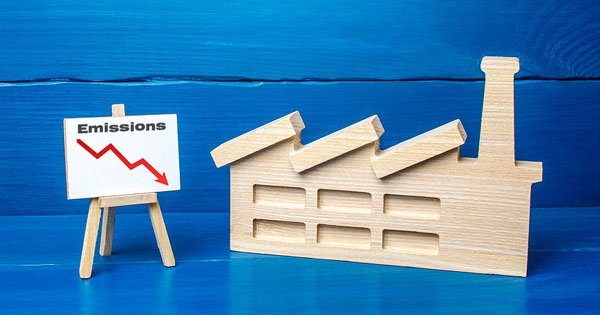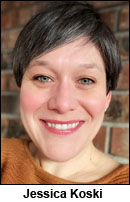OPINION
Clean manufacturing is a climate priority
By JESSICA KOSKI
(April 22, 2021) — Limiting global warming to 1.5°C demands rapid and bold industrial transformation. The industrial sector accounts for approximately one quarter of our global carbon footprint. The roadmap to net zero emissions by 2050 requires accelerating the production of next generation low-carbon materials and sustainable energy technologies.
Today as we celebrate another Earth Day, Washington state is well-positioned to lead this clean manufacturing revolution. The state boasts a low-carbon electric grid and a highly skilled workforce, two instrumental building blocks of a sustainable and robust industrial economy. As the rest of the world struggles to cut industrial emissions, Washington is already home to multiple world-class manufacturing facilities for low-carbon materials like steel rebar and aerospace aluminum plate.
Growing our green industrial economy is critical for a strong and fair economic recovery. Manufacturing jobs are often high-wage, stable jobs that are the cornerstones for families and communities. For that reason, the decline in local and domestic manufacturing is hampering the middle class and contributing to soaring income inequality.
 The recent curtailment of the Alcoa Intalco Works smelter in Ferndale illustrates the devastating impact that a facility closure has on a community. The curtailment eliminated 700 good jobs and will also cause indirect job loss.
The recent curtailment of the Alcoa Intalco Works smelter in Ferndale illustrates the devastating impact that a facility closure has on a community. The curtailment eliminated 700 good jobs and will also cause indirect job loss.
The state is considering a swath of carbon regulation policies — from carbon pricing to how we assess the emissions from large industrial projects. It is crucial for our global climate and our economy that Washington’s decarbonization strategies maintain and grow clean manufacturing.
Current approaches to tackling emissions too often promote a race towards the bottom in labor and environmental standards and displace pollution onto vulnerable communities outside of Washington instead of reducing it — a phenomenon known as carbon leakage. This “passing the buck” is due to a structural problem in how we define our climate goals. Focusing solely on reducing emissions locally ignores interstate emissions driven by consumption.
Washington, unlike neighboring Oregon, has not measured its consumption-driven emissions. Oregon’s accounting provides a glimpse at how Washington could learn from a similar exercise. First, it suggests that Washington’s contribution to climate change is likely substantially larger than currently understood. Second, many of those emissions probably occur out of state but are driven by demand in Washington.
These uncounted emissions form what researchers term the “carbon loophole.” Energy-intensive products like aluminum and steel are produced in countries with poor labor and environmental standards and then are imported by countries that have much more stringent protections that only apply to local manufacturers. No state or country is reducing the emissions associated with manufacturing those goods, and workers are left unprotected.
We cannot limit global warming to 1.5°C or build a fair, robust economy without closing the carbon loophole, which accounts for about a quarter of global carbon pollution.
This does not mean lowering our environmental and labor standards to match the lowest common denominator. That only further accelerates the race to the bottom. Instead, it means raising the bar.

Washington’s policymakers must collaborate with industry leaders, labor, environmental advocates, and scientists to set and meet ambitious, but achievable, industrial decarbonization goals, protect the health of all Washington communities by reducing pollution, and promote high-road labor standards in manufacturing.
Next, policymakers must level the playing field for manufacturers that invest in pollution controls and treat workers fairly by adopting climate policies that hold all manufacturers—both in and outside Washington—to the same high standards. The Buy Clean and Buy Fair Washington Act (HB 1103) is an example of a policy that takes the risk of leakage seriously and strives to reduce emissions while simultaneously protecting the competitiveness of manufacturers that meet our high standards. Championed by Rep. Davina Duerr (D-Bothell) and Sen. Derek Stanford (D-Bothell), it promotes spending Washingtonians’ hard-earned tax dollars on ethical low-carbon building materials for public works. Although the bill did not advance this year, it is expected to be reintroduced for the 2022 session. If adopted, Buy Clean and Buy Fair would leverage existing state spending to eliminate unfair competition and drive market change.
We need Washington policymakers to bring that same lens and leadership to all carbon reduction policies on the table to make our state a leader in industrial transformation.
 Jessica Koski is the Washington State Policy Coordinator for the BlueGreen Alliance, which unites America’s largest labor unions and its most influential environmental organizations to solve today’s environmental challenges in ways that create and maintain quality jobs and build a stronger, fairer economy. To learn more, contact Jessica at jkoski@bluegreenalliance.org.
Jessica Koski is the Washington State Policy Coordinator for the BlueGreen Alliance, which unites America’s largest labor unions and its most influential environmental organizations to solve today’s environmental challenges in ways that create and maintain quality jobs and build a stronger, fairer economy. To learn more, contact Jessica at jkoski@bluegreenalliance.org.





